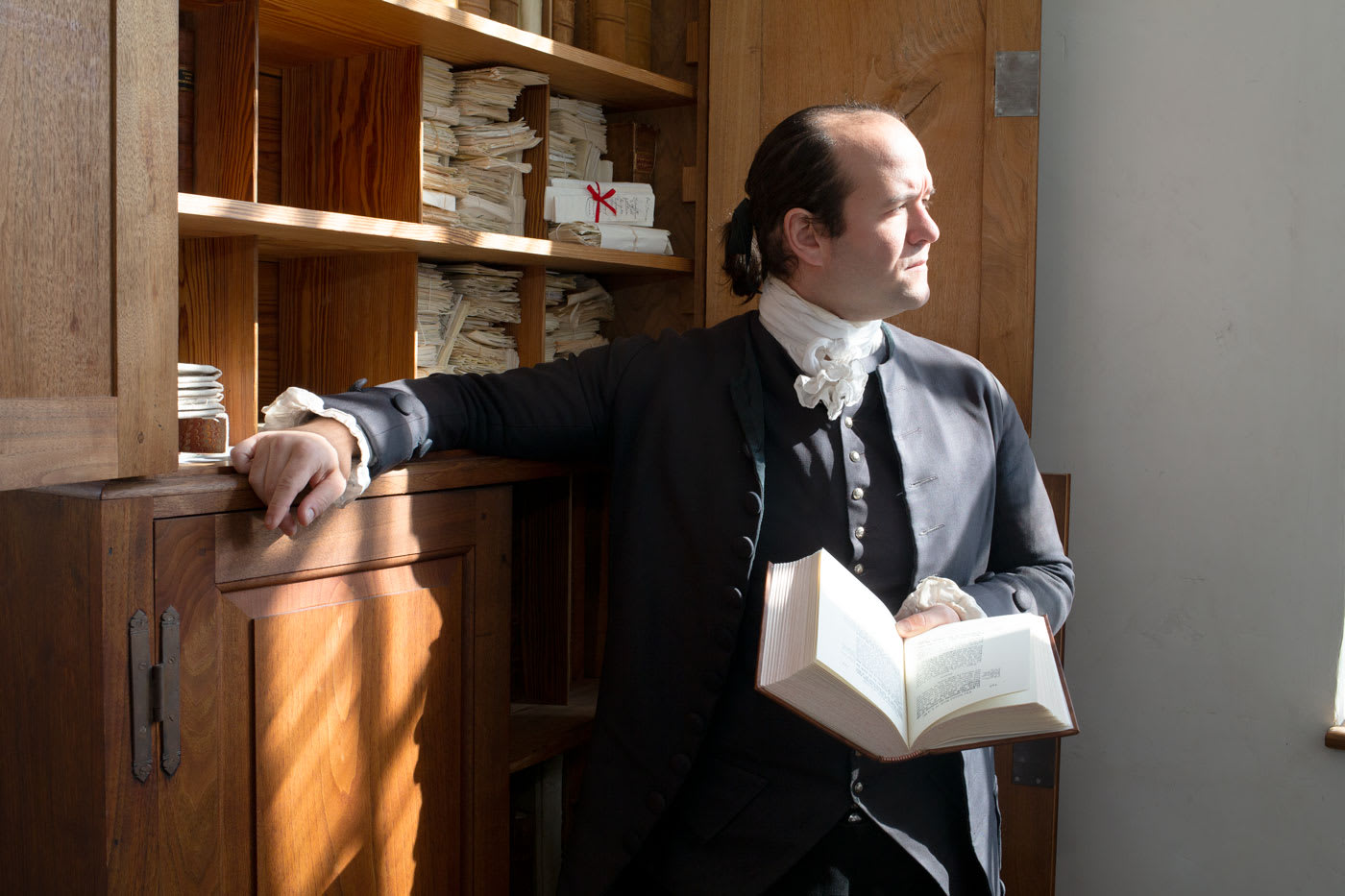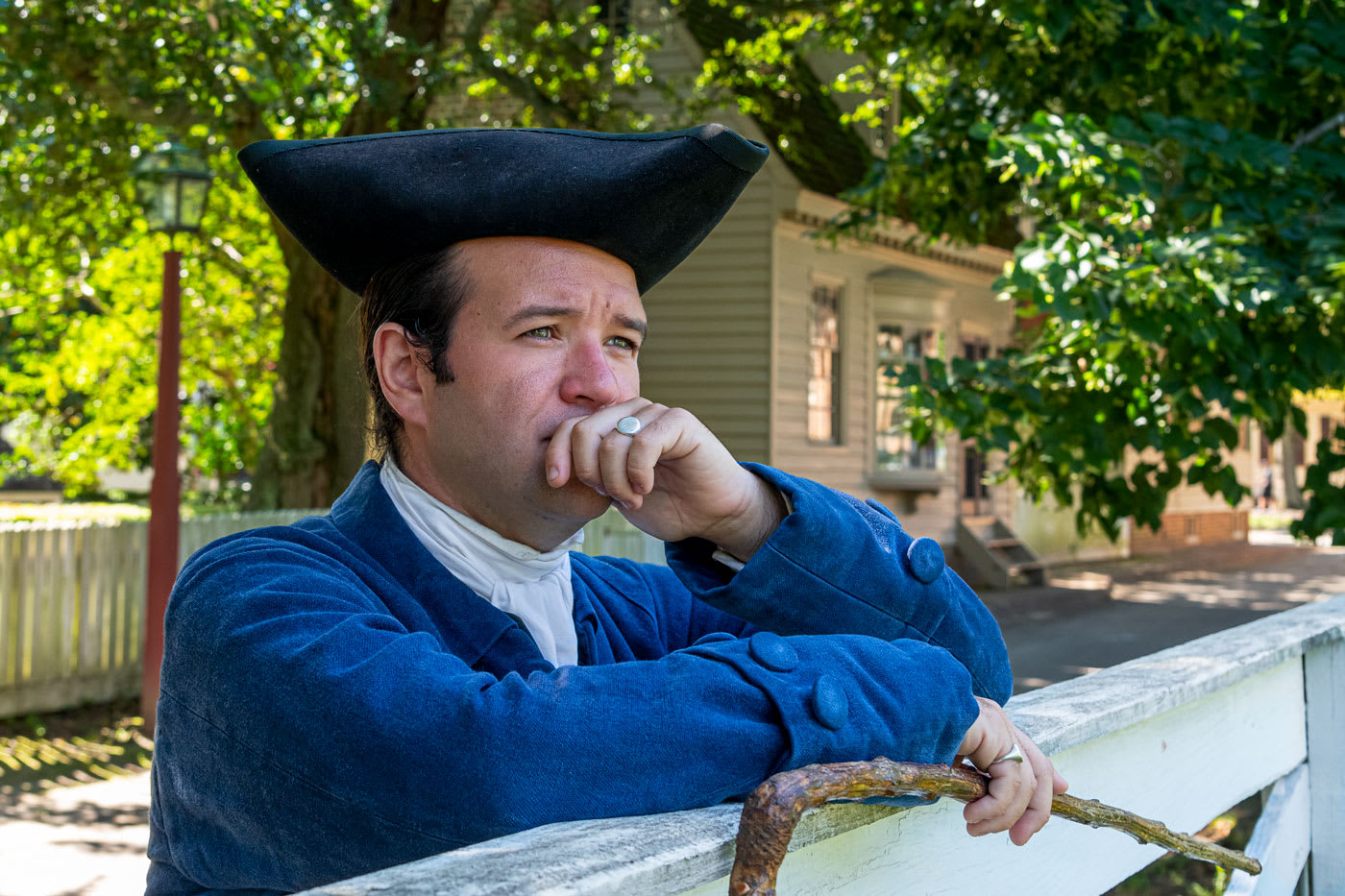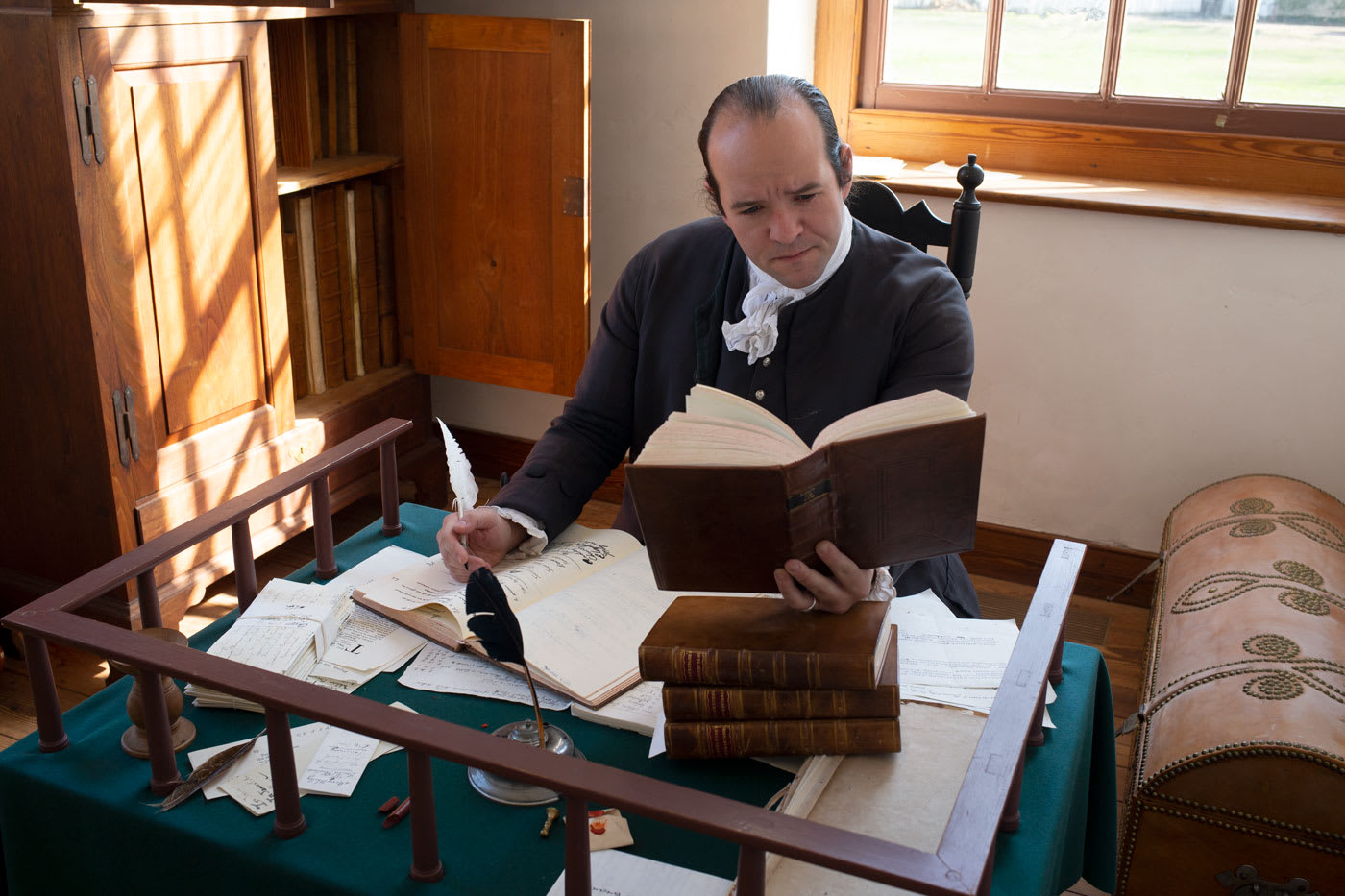Take a cue from James Madison
“These are the times that try men's souls. The summer soldier and the sunshine patriot will, in this crisis, shrink from the service of their country; but he that stands by it now, deserves the love and thanks of man and woman.”
Thomas Paine coined these words just five months into America’s independence, and since then, she’s been fighting on. Through her enduring story, she’s battled against prejudice, inequality, and foreign entanglement.
Yet the great equalizer, for both time and nations, is sickness. The Founders experienced it through smallpox and yellow fever, and modern America is certainly experiencing it now amidst the uncertain and unprecedented shutdown due to COVID-19.
Every aspect of our convenient, contemporary life has changed and, as we look towards uncertainty in the future, we find a sense of comfort in the past.
So how did the people of previous generations handle pandemics on the scale we do now? For the privileged few, like your friendly neighborhood James Madison, the answer is not so different than what we’ve been asked to do now: SELF-ISOLATE.
Madison was the last of the founding generation to pass away, with a respectable eighty-five years to his name, and a thousand letters to pass on to future generations. How did he do it? Juice cleanses? Fad diets? Maybe? History doesn’t cover that part, so much. In my opinion, it came from his mother’s side of the family (his mother living well into her late nineties and always taking care when it came to her health), which goes to show that slow and steady does indeed win the race. What history does cover is his near super-human ability to stay home when things got exciting.

There wasn’t a week that went by over the course of Madison’s long life where he wasn’t complaining of some ailment or another. It affected every chapter of his life; from his days after leaving college, to the ratification of the Constitution, to his presidency.
It’s frustrating sometimes studying Madison. I don’t say that to be disrespectful. With his genius-level intellect on human nature and government, my workload is full. What I mean by that is simply this, he had every opportunity to see the world and live his biggest life and, time and time again, he chose to stay healthy rather than take the risk.
Through 1776 and well into the 1790s, he received at least four opportunities to go overseas to Europe to better acquaint himself with the world. Some were for business, some were for pleasure. On one trip, Thomas Jefferson even offered to fund everything except the voyage to France — a deal a lot of modern Americans likely wouldn’t pass up.
Madison’s excuses, at first, were logical, “I can’t, I have too much homework!” After all, he was barreling towards the Constitutional Convention and was reading nearly a book a day on ancient governments. Yet, after a while, we begin to see the fact that Madison was rigorously guarding his health. In a letter to Jefferson, he eventually comes clean about his reticence for overseas travel:
“I have some reason also to suspect that crossing the sea would be unfriendly to a singular disease of my constitution.”
Madison knew his purpose: to be the recorder of America’s beginnings. His extreme hypochondria is posterity’s gain. He knew when to push himself, and he knew when to guard his health. One of his most famous instances of self-isolation was the research he did leading up to the Constitutional Convention. Madison would wake every morning, take his breakfast, and then lock himself away in a library of thousands of books pouring through history of ancient confederations until the sun went down, culminating in what would eventually be called the Virginia plan. He didn’t stop there. During the constitutional convention, Madison was present every day for the secret proceedings in what is today called Independence Hall. At the close of each day, he would close himself away in his boarding house and transcribe his notes of the debates and arguments that were made that day, to ensure history would have an account of what took place.

All of this is to set the stage for one of my favorite anecdotes of Madison’s time in Williamsburg. The summary of the story is this: James Madison loses his hat and doesn’t leave the house for three days. He tells the story in his own words in the 19th century:
"Did I ever tell you of the loss of my hat?…..Well sir, I was staying at Bishop Madison’s in Williamsburg (he was not yet Bishop. by the by), and my hat was stolen out of a window in which I had laid it. It was about a mile from the house to the palace, and I was kept from going to the latter two days, by the impossibility of getting a hat of any kind. At last, however, I obtained one from a little Frenchman who sold snuff – very coarse – an extremely small crown and broad brim, and it was a subject of great merriment to my friends."

Now his reason for doing this are three fold, in my opinion.
- The fashion of the time was that a gentleman always left the house with his head covered or hair dressed.
- Madison was balding, and was sensitive about it. (he combed his hair into his famous, widows-peak point, to cover up his baldness.
- He was anxious about his health and didn’t want to catch something.
The home he mentions in the story still stands, on the old campus of William and Mary. His daily commute was the Duke of Gloucester Street. I think of that walk every time I put on the suit and walk the same streets. I think of his worries, his triumphs, and his hopes anytime my feet plant themselves on Duke of Gloucester Street.
The street is pretty empty right now, and I am grateful for it. It means Americans are following in Madison’s careful footsteps. What lesson can we find in the habits of this quiet and contemplative founder? That self-care is not only okay, but a virtue. That, through trying times, the past has wisdom for us. And lastly, that whatever crisis or temporary crisis America might face, that, inevitably, people will walk again in the steps of the past with the sincere hopes of making new ones for the future to follow.
Bryan Austin is a professional actor, writer, and interpreter with over 20 years in the theatre and museum world. His presentations as Madison have taken him to schools and audiences across the country along with interviews and articles with TIME and various other local newspapers.
